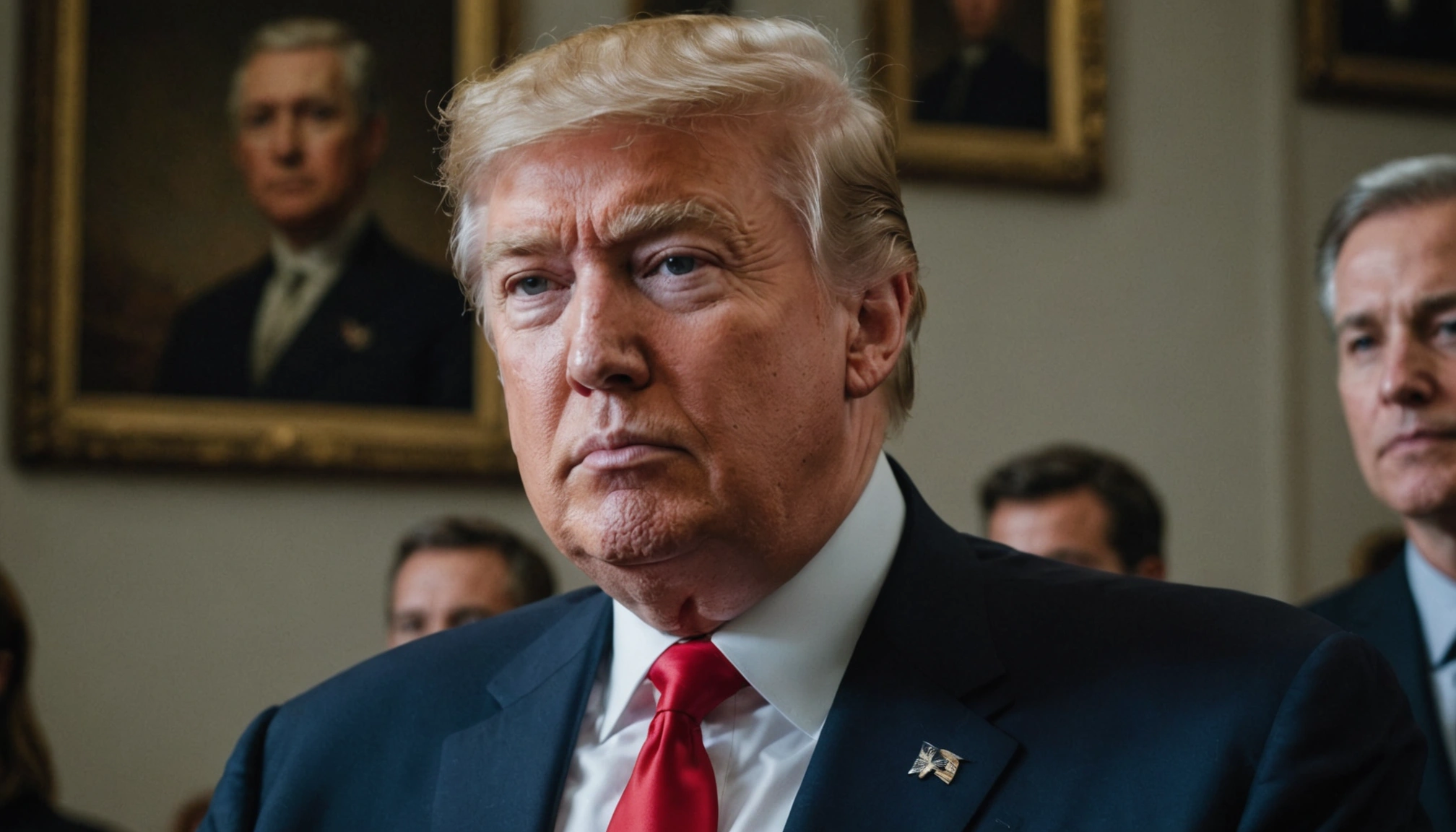Trump-Era Tariffs Continue to Hamper U.S. Meat Exports

President Donald Trump's imposition of tariffs during his presidency continues to cast a long shadow over the U.S. meat industry, creating barriers to international trade and impacting American farmers and consumers alike. While some domestic cattle ranchers initially expressed optimism, the broader consequences of these tariffs have led to decreased demand for U.S. meat products in key global markets, particularly in China.
Retaliatory Tariffs and Market Access
In response to the U.S. tariffs, several countries, including China, Mexico, and Canada, have imposed retaliatory measures on American goods, including meat products. China, a major importer of U.S. beef and pork, has significantly increased tariffs on these products. As of April 10, 2025, U.S. pork exports face an 81% tariff, while beef is subject to a 56% tariff. These hefty rates make U.S. meat less competitive in the Chinese market, prompting China to seek alternative suppliers.
The U.S. Meat Export Federation (USMEF) has expressed concerns about the impact of these tariffs, particularly on pork exports. The organization notes that China accounts for a significant portion of U.S. pork variety meat exports, which are valued at approximately $10 per hog. The increased duties severely impact these exports. The USMEF is hopeful that negotiations will be held soon to address these issues.
Impact on Beef and Pork Industries
The tariffs have created major obstacles for U.S. beef exports to China, jeopardizing export opportunities. Taking China out of the export mix also impacts the prices U.S. beef cuts command in markets like South Korea, Japan, and Taiwan.
The pork industry has also been significantly affected. U.S. pork exports to China reached a record $2.28 billion in 2020 but have since declined to $1.24 billion in 2023. These declines are partly due to China's pork production rebounding following the introduction of African swine fever (ASF) in the country but are mostly related to China's retaliatory duties on U.S. pork products that continue to limit U.S. market share and export potential.
Global Trade Implications
The tariffs have broader implications for global agricultural trade. A recent analysis suggests that the tariffs could lead to a contraction in global agricultural trade of 3.3%-4.7% and a decline in global GDP of 0.3%-0.4%, with U.S. GDP falling further, by 1%-1.2%.
The tariffs also affect consumers. For exporting countries facing tariffs, prices generally will be lower because more product will be available for domestic consumption. For countries that see an increased demand due to trade diversion, prices will be higher. Higher agricultural prices could have adverse impacts on poorer households, particularly in urban areas where consumers spend a larger share of their income on food.
U.S. Trade Agreements
The United States is party to several trade agreements enacted over the past three decades, including many with the world's largest animal agricultural commodity partners. These agreements often grant preferential or reduced tariffs on many U.S. goods and can create opportunities for future negotiation or reduction of non-tariff trade barriers.
For example, provisions in the U.S. free trade agreement with South Korea (KORUS) removed tariffs on more than 90 percent of U.S. pork by 2016. Provisions of the Phase One Agreement between the United States and China granted China's recognition of USDA, Food Safety Inspection Service (FSIS) standards, allowing all FSIS-approved processors to export to China without needing to receive individual-level approval.
Industry Response and Future Outlook
The Meat Institute has opposed the Section 301 tariffs, calling for comprehensive trade agreements as a long-term strategy to level the playing field for meat and poultry companies and to hold China accountable for its actions. The organization argues that the tariffs and resulting retaliatory measures imposed by China have caused undue harm to U.S. agricultural exports, including meat exports.
Despite the challenges posed by the tariffs, the U.S. meat industry remains a significant player in the global market. In 2023, U.S. animal product exports exceeded $37 billion, representing about one-fifth of the value of total U.S. agricultural exports. The United States holds strong market positions in many of its most common destinations for animal agricultural commodities, including Japan, South Korea, China, and the North American markets of Mexico and Canada.
Impact on Consumers
If beef prices stay high for too long, consumers will start to shift to chicken, pork, or plant-based options. The latest round of tariffs on beef imports from Canada and Mexico, imposed by President Donald Trump, is set to shake up the beef industry. With a 25% tariff on imported beef, costs are expected to rise, and consumers will feel the effects at grocery stores, restaurants, and butcher shops. While the goal is to protect U.S. cattle ranchers, the reality is that price increases will be felt across the entire supply chain—from processors to fast food chains, and ultimately, consumers.
Conclusion
The tariffs imposed during the Trump administration continue to impact the U.S. meat industry, creating barriers to trade and affecting farmers and consumers. While some argue that the tariffs are necessary to protect domestic industries and address trade imbalances, the retaliatory measures imposed by other countries have led to decreased demand for U.S. meat products and broader economic consequences. As the global trade landscape continues to evolve, it remains to be seen how the U.S. meat industry will navigate these challenges and maintain its competitiveness in the international market.
Related Articles

A New Era in HIV Treatment: Single-Pill Regimens Offer Hope to Aging Population
A significant shift in HIV care is on the horizon, promising to revolutionize daily treatment for older adults living with the virus. New investigational single-pill and simplified regimens are emerging from clinical trials, offering the potential to dramatically reduce the burden of complex multi-drug therapies that have long challenged this growing demographic

Artemis II Rocket Returns to Hangar, Lunar Mission Faces Further Delay
CAPE CANAVERAL, Fla. — NASA's ambitious journey back to the Moon has encountered another hurdle, as the Artemis II Orion spacecraft and Space Launch System (SLS) rocket are being rolled back to the iconic Vehicle Assembly Building (VAB) at Kennedy Space Center. This unexpected return to the hangar stems from a newly identified malfunction within the rocket's critical helium pressurization system, forcing a further delay for the first crewed lunar mission in over five decades

Wildfire Smoke: A Silent Invader Harming Every System of the Body
Across regions increasingly besieged by escalating wildfires, a pervasive and insidious threat lurks in the air: wildfire smoke. Far from being a mere respiratory irritant, this complex mixture of gases and fine particles constitutes a profound danger to nearly every organ system in the human body, silently inflicting both immediate and long-term damage that extends well beyond the lungs